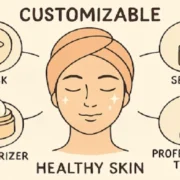Understanding Mosquito Behavior
Understanding mosquito behavior and life cycle is crucial to effectively managing them. Mosquitoes lay eggs in stagnant water, and their larvae thrive in these environments. They are most active during dawn and dusk, making these prime times for mosquito avoidance and control. Knowing these patterns helps in strategizing the timing and placement of control measures. For instance, insect repellents and mosquito traps would be most effective during these active periods. Understanding their behavior allows for more precise and efficient approaches to mosquito management.
According to the Centers for Disease Control and Prevention (CDC), removing breeding areas is one of the best strategies for lowering mosquito populations.
Eliminate Standing Water
Standing water is a haven for mosquito reproduction. Eliminating all potential standing water sources is one of the most effective strategies to thwart their breeding process. This includes everyday items like bird baths, pet water bowls, and plant saucers. Make it a habit to empty and refresh the water in these containers at least weekly. Another area that often gets overlooked is clogged gutters. Ensure gutters are cleaned regularly to prevent water accumulation. Covering rain barrels with fine mesh would help keep mosquitoes out.
People must often remember to remove unused items like tires or discarded containers that can collect rainwater. These places can hold stagnant water, becoming perfect breeding sites for mosquitoes. By proactively managing these water sources, you can significantly hamper the mosquito population around your home. Keeping your outdoor environment dry is fundamental to achieving effective mosquito control in Boston.
Use Natural Repellents
Several plant-based repellents have proven effective in warding off mosquitoes, adding a natural touch to your pest control efforts. Lemon eucalyptus oil, for example, is a potent natural repellent. It may be sprayed straight on the skin or dispersed around the yard using diffusers. Citronella is another popular choice; whether in the form of candles or planted around the yard, it can help create a mosquito-free zone. Lavender plants add beauty to your garden and act as powerful mosquito repellents.
Surprisingly, catnip has also been discovered to be more effective than DEET, the most common active ingredient in insect repellents. These natural options are not only practical but also eco-friendly. The Environmental Protection Agency (EPA) offers a thorough guide to help you choose suitable repellents.
Maintain Yard Hygiene
Mosquitoes thrive in yards that provide ample hiding spots and breeding grounds, making yard hygiene an essential factor in controlling their population. Begin by regularly mowing your lawn to keep grass at a manageable height. It reduces the damp, shaded environment that mosquitoes find attractive. Trimming bushes and shrubs is another effective way to minimize hiding spots for these pests.
Dispose of leaf litter promptly as it accumulates. Fallen leaves and other organic materials can trap moisture, making the conditions ideal for mosquitoes. Additionally, ensure that your water features, such as ponds, are adequately maintained with effective filtration systems to prevent them from becoming stagnant. Keeping your yard clean and well-maintained creates an environment that is less inviting to mosquitoes and other pests.
Install Mosquito Traps
Mosquito traps are a highly effective tool in reducing the mosquito population in your yard. These devices attract mosquitoes using various attractants, such as carbon dioxide or UV light and trap them, breaking their breeding cycle. When installing mosquito traps, placing them in shaded areas is crucial for maximum efficiency.
Different mosquito traps, including electric, sticky, and CO2 traps, are available. Electric traps use a combination of light and a fan mechanism to capture mosquitoes, while sticky traps use adhesive surfaces to trap them. CO2 traps, on the other hand, mimic human breath to lure mosquitoes. The best kind of trap will depend on your demands, the severity of your mosquito problem, and other factors. Each style of trap offers benefits.
Consider Professional Services
If you find that despite your best efforts, you are still dealing with a severe mosquito infestation, it may be time to call in professional services. Expert mosquito control services use specialized equipment and treatments to target mosquito breeding sites effectively. Professionals are trained to administer insecticides safely and effectively and have access to more potent pesticides.
These services can also offer long-term prevention strategies, ensuring your yard remains mosquito-free throughout the season. They may comprehensively assess your property to find possible breeding grounds and offer advice and solutions specific to your circumstances. Given the health risks associated with mosquito-borne diseases, investing in professional mosquito control services can provide peace of mind and a safer outdoor environment for you and your family.
Caring Touch Home Health Makes a Difference in Patients’ Lives










Comments